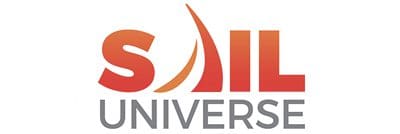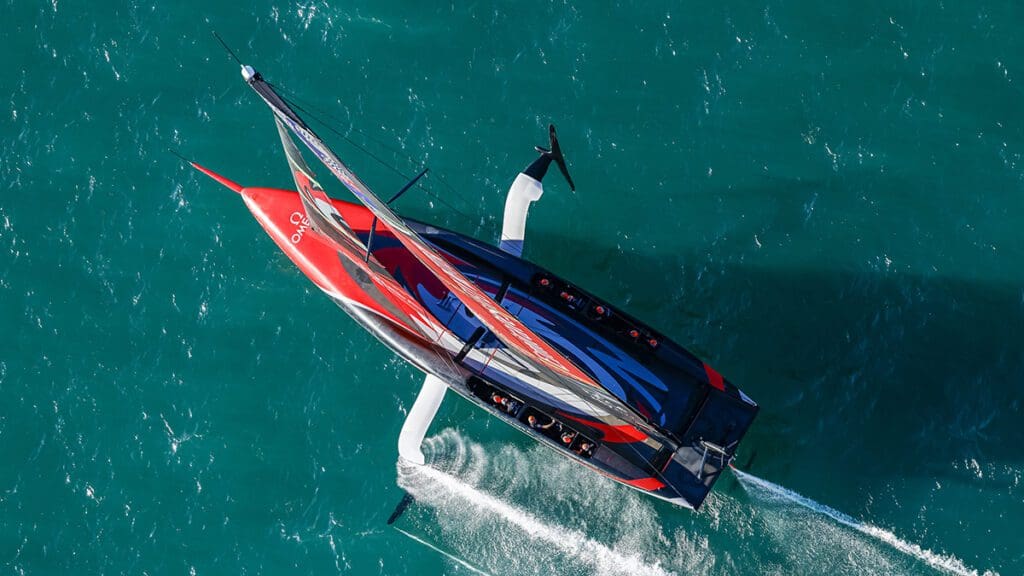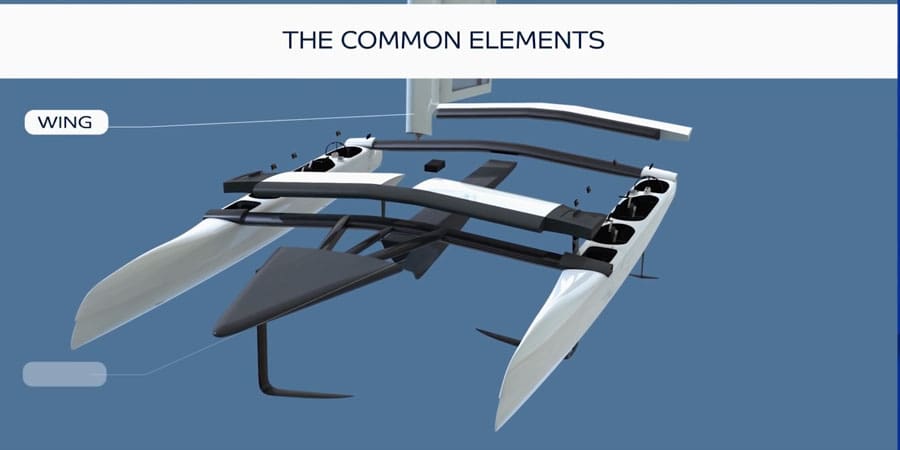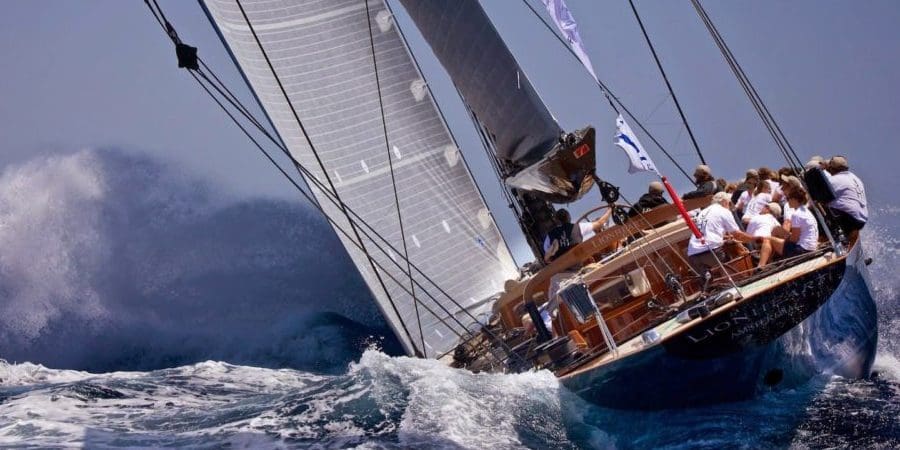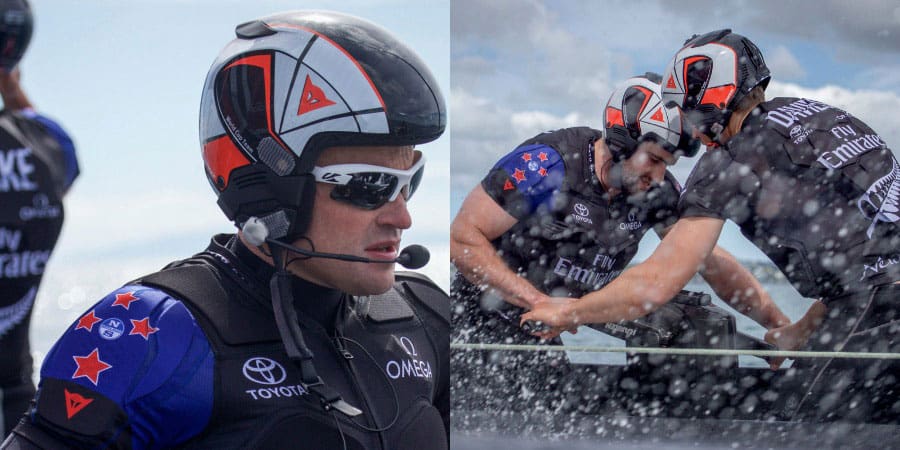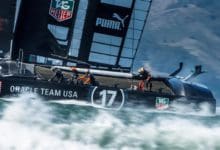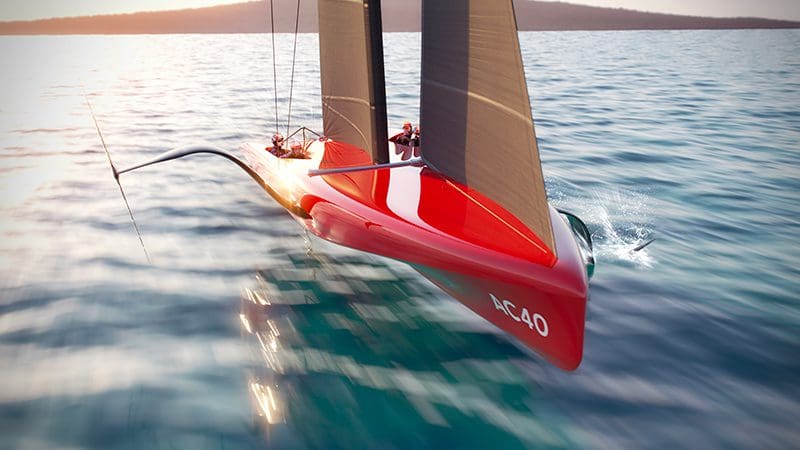37th America’s Cup Protocol and Class Rule Announced
The Protocol of the 37th America’s Cup was released today by the Defender, the Royal New Zealand Yacht Squadron and Emirates Team New Zealand and the Challenger of Record – Royal Yacht Squadron Ltd and their representative team INEOS Britannia, eight months to the day after Emirates Team New Zealand successfully defended the America’s Cup.
The Protocol sets the foundations and rules of participation for all teams in the 37th America’s Cup and records the items of mutual consent under the America’s Cup Deed of Gift agreed between the Defender and the Challenger of Record which establishes the basis for a multi challenger event.
Defender Emirates Team New Zealand’s CEO Grant Dalton said: “As we saw with AC36, after 170 years, as the oldest trophy in international sport, the America’s Cup maintains its unique position of balancing the traditions of the Deed of Gift while continuing to push the boundaries of innovation, technology and design in the boats, the event, the broadcast and the commercial aspects of the event.
INEOS Britannia CEO and Team Principal Sir Ben Ainslie said: “As Challenger of Record, INEOS Britannia has sought with the Defender, Emirates Team New Zealand, to make the next America’s Cup less expensive and more inclusive. The Protocol this time around will see reduced team operating costs without compromising any of the technical development which the Cup is so famous for. There is an opportunity for change, so for AC37 we will see the first Women’s America’s Cup Regatta and we also welcome back the Youth America’s Cup.”
An updated ‘Version 2’ of the AC75 Class Rule has been released from the last America’s Cup which specifies the latest requirements to be compliant with the class rule including modification requirements for new teams buying ‘Version 1 AC75’s’ that were built and used by teams competing in AC36.
Cost reduction has been a key consideration as part of the balance in the development of the AC37 Protocol including:
• Teams are only permitted to build one new AC75.
• Limitations on the quantity of foils and componentry that can be built for the AC75’s.
• Introduction of the multipurpose One Design AC40 class which teams will be able to convert and use for testing, component development and Match Race training.
• AC40 class will then be converted back to the measured One Design AC40 class for use in the exciting new America’s Cup Women’s Regatta and America’s Cup Youth events. These events have been developed to create new accelerated inclusive pathways into the America’s Cup for the growing global talent pool of female and youth sailors.
• Race crew onboard the AC75 reduced from 11 to 8 sailors.
• Further One design elements.
• Shared team recon.
• Supplied starting software.
The shared recon programme whilst reducing costs, is also aimed to give America’s Cup fans the inside track on the testing and development on the water by all the teams. The observations will be made public via AC media channels so that fans can stay up to date with the latest developments as they emerge from the sheds throughout the whole of AC37.
With a view to opening the doors and the continued drive to increase the global audience of the America’s Cup and the sport of sailing, a condition of entry to competitors is they agree to be part of a potential behind-the-scenes documentary series. The intention of this is to bring the secrecy, the drama and all the teams’ personalities into the limelight.
There will be up to three Preliminary Regattas, the first two raced in AC40s, the last one at the Match venue in AC75s. The Challenger Selection Series and the America’s Cup Match will be held in 2024, with the Match Venue and approximate event dates to be announced by 31st March 2022.
The Protocol outlines restrictions on when the AC75’s can be sailed. With the anticipated benefit angled towards new Challengers to AC37, existing teams are not permitted to sail their AC75s’ before the 17th September 2022, however new Challengers entering AC37 that have purchased a second hand AC75 are permitted to sail their AC75 for 20 days from 17th June 2022. There are other restricted sailing periods which are provisional and will be confirmed once the Match venue is announced.
The Crew Nationality Rule will require 100% of the race crew for each competitor to either be a passport holder of the country of the team’s yacht club as of 17th March 2021 or to have been physically present in that country (or, acting on behalf of such yacht club in Auckland, the venue of the AC36 Events) for 18 months of the previous three years prior to 17th March 2021. As an exception to this requirement, there will be a discretionary provision allowing a quota of non-nationals on the race crew for competitors from ‘Emerging Nations.’
As part of the ongoing drive for innovation and new clean technology in the America’s Cup, it is now a mandated obligation of all teams to build and operate two hydrogen powered foiling chase boats for their campaign (subject to proof of concept). It’s hoped showcasing proven hydrogen technology in the marine sector will help create a game-changing pathway for the wider industry and lead to a significant reduction in its carbon footprint. These boats must be a minimum of 10 metres long and the usage and performance criteria is set out in the Protocol.
“So for the past year we have been researching, designing and are now building a prototype hydrogen-powered foiling chase boat which will have a dramatic effect on the reduction of the team’s carbon footprints, as well as pushing the development of hydrogen in the marine sector.”
Race Management will be entirely independent of the event organisation and will be led by the Regatta Director. The umpires and jury that will manage all on the water rules and disputes for all events.
• The independent Rules and Measurement Committees will be responsible for interpretation of the AC75 Class Rule and the yacht measurement.
• A three-person Arbitration Panel will oversee and deal with all Protocol disputes with published decisions to maintain the integrity of the event. And there will be a new fast-track process to reduce the potential delays in making decisions on disputed items.
